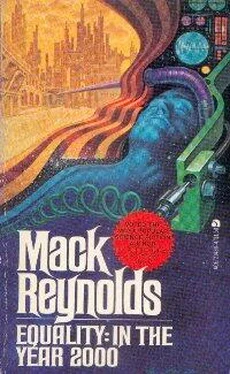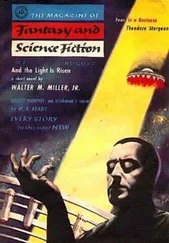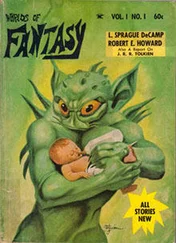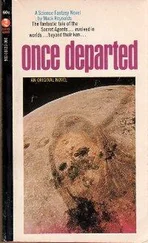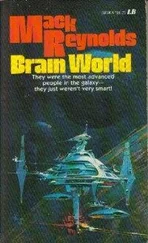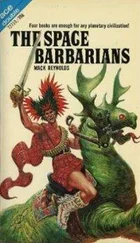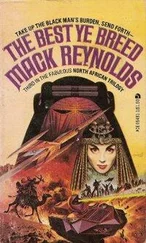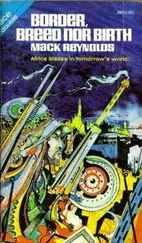Mack Reynolds - Equality - In the Year 2000
Здесь есть возможность читать онлайн «Mack Reynolds - Equality - In the Year 2000» весь текст электронной книги совершенно бесплатно (целиком полную версию без сокращений). В некоторых случаях можно слушать аудио, скачать через торрент в формате fb2 и присутствует краткое содержание. Год выпуска: 1977, ISBN: 1977, Издательство: Ace Books, Жанр: Фантастика и фэнтези, на английском языке. Описание произведения, (предисловие) а так же отзывы посетителей доступны на портале библиотеки ЛибКат.
- Название:Equality: In the Year 2000
- Автор:
- Издательство:Ace Books
- Жанр:
- Год:1977
- ISBN:0-441-21430-4
- Рейтинг книги:3 / 5. Голосов: 1
-
Избранное:Добавить в избранное
- Отзывы:
-
Ваша оценка:
- 60
- 1
- 2
- 3
- 4
- 5
Equality: In the Year 2000: краткое содержание, описание и аннотация
Предлагаем к чтению аннотацию, описание, краткое содержание или предисловие (зависит от того, что написал сам автор книги «Equality: In the Year 2000»). Если вы не нашли необходимую информацию о книге — напишите в комментариях, мы постараемся отыскать её.
Equality: In the Year 2000 — читать онлайн бесплатно полную книгу (весь текст) целиком
Ниже представлен текст книги, разбитый по страницам. Система сохранения места последней прочитанной страницы, позволяет с удобством читать онлайн бесплатно книгу «Equality: In the Year 2000», без необходимости каждый раз заново искать на чём Вы остановились. Поставьте закладку, и сможете в любой момент перейти на страницу, на которой закончили чтение.
Интервал:
Закладка:
“Why is all this important?”
“Amalgamating the three great powers would join our technologies and bring greater efficiency. There would be one great Production Congress, rather than three. And, so far as I see, the anachronistic national civic governments could be allowed to wither away completely, since there would no longer be foreign countries to deal with, with their ambassadors, consuls and so forth.”
Julian said, “That brings something else to mind. What’s happened to the underdeveloped countries in the last thirty years?”
’They are still largely undeveloped and backward. There are still small nations in, say, the Near East that are absolute monarchies—sheikdoms. As the value of oil decreases in the world, they become ever poorer. There are still military dictatorships in South America; their economies, unable to compete on such world markets as remain, subject their peoples to worse and worse poverty.”
“Then why would you want to take them into this new world government you advocate? They’d drag down the level of the advanced countries if you automatically put them on your same Guaranteed Annual Income.”
The other looked at him levelly. “Because they are members of the human race. To the question, ‘Am I my brother’s keeper?’, Julian, the answer is yes. Nor is it a question of their coming to us as beggars, at least most of them. These undeveloped countries have been unable to industrialize, not being able to compete with the economies of the advanced countries, but they are sources of raw materials. And many offer a great deal in very desirable localities for residential areas, in scenic areas for travelers, in areas to be converted into great World Parks. I, for instance, would love to see the whole Congo turned back to nature, reseeded with animal life ranging from gorillas to elephants.”
Julian nodded. “Tell me, Raymond, in this present society, what happens to the crackpot genius? Take Edison. I understand he had less than a year of schooling. Certainly the Aptitude Quotient computers wouldn’t have selected him.”
Leete chuckled. “I am afraid genius, crackpot or otherwise, will out in any society. For one thing, your Edison would have gotten more than a few months’ education today. But even if the computers had not selected him, his urge toward experimentation would have come out in his studies in his leisure time. As I said, genius will out. Both Leonardo da Vinci and Michelangelo were born underprivileged, and in one of the most restrictive societies man has ever had—feudalism. It didn’t prevent them from turning out some of the greatest work man has ever accomplished.”
Julian took a breath. “All right. Another question. Why are you people so down on religion?”
The other looked at him in amazement. “We’re not down on religion. You can practice any religion you wish.”
“Then why do so few seem to?”
“Julian, it had already begun in your day. How many of your intelligent and educated friends really believed in the old fundamentalist or orthodox religions? I don’t mean just lip service, but believing the whole story?”
“I was raised an Episcopalian. I didn’t pay a great deal of attention to it, perhaps, but basically I believed in the Christian religion.”
“Oh, you did, eh? You know, Julian, for a long time I’ve held the belief that any philosophy, religion, or political belief can be summed up in two hundred words. If it can’t, something is wrong with it. Very well. Sit down at the desk there and give me the Judeo-Christian religion in two hundred words.”
Julian scowled at him, but obeyed. He sat down at his desk, and instead of utilizing the voco-typer, took up a stylo and paper. He began to write. He soon found two hundred words weren’t a great deal. He scratched out some of the sentences but persevered. He must have sat for the better part of an hour before finishing. But when he reread what he had written, and reread it again, he took up the three or four sheets of paper, crumpled them and threw them into the wastepaper basket.
He returned to the chair opposite the doctor.
He said sourly, “Anybody who had never heard of the Christian religion and read that would think I was an idiot if I believed it.”
Leete said, his voice wry, “You know, most of our Earth religions have subscribed to the idea that God, or the gods, created man in his own image and is highly concerned with him. But now we are tending to the belief that man is far from alone in being an intelligent creature in the universe; that most likely there are other intelligent life forms far in advance of ours. Somebody somewhere pointed out that if there are gods whose chief concern is man, they can’t be very important gods, considering the extent of the universe.”
Julian grunted amusement. He said, “I’ve heard of the attempts to contact extraterrestrial intelligent life.”
“Yes, it is just a matter of time, I suppose. There’s one interesting aspect of religion that I’ve considered that I suspect few religious persons have. Specifically, suppose that there is a God, and that he isn’t benevolent.”
“How do you mean?”
“Obviously, such a being would be far, far further above us than, say, we are above the cockroach. And we would be less capable of understanding him than the cockroach is of understanding us. We would have no idea what motivates him.”
Julian regarded him blankly.
Leete chuckled. “Take, for instance, the cow as it was before you went into stasis. Cows, had they been capable of thought, might have thought of we humans as gods since we fed them, housed them, protected them from enemies, took care of their health, even helped bring their offspring into the world. Surely they would have thought of us as benevolent. In actuality, we stole their milk all their lives, and finally wound up killing and eating them.”
Julian said, “We seem to have drifted far from our original subject of why our apartments are being bugged, world government, and socioeconomic systems. I’m still not sure just what label this system would bear.”
The other said humorously, “When I was a young fellow there was a science fiction editor named John C. Campbell who once wrote that any socioeconomic system will work well given top men to run it. Both heaven and hell are despotisms. Today, with our computers and data banks, we have the means to find the best men to direct the workings of our society. However, I far from agree with Campbell. For instance, it is my belief that if instead of Nixon and his people at the helm of American government at the time you went into hibernation, you’d had Jesus for president and his twelve disciples for a cabinet, the country would still have gone to pot. The politico-economic system no longer worked, and nobody could have made it work. For one—”
But at that point the identity screen buzzed. When they looked up, they saw it was Edith.
Chapter Sixteen
The Year 2, New Calendar
And this, too, shall pass away… How much this expresses! How chastening in the hour of pride! How consoling in the depths of affliction!… And yet, let us hope, rather, it is not quite true. Let us hope that by the best cultivation of the physical world beneath and around us, and the best intellectual and moral world within us, we shall secure an individual, social, and political prosperity and happiness, whose course shall be onward and upward, and which, while the earth endures, shall not pass away.
—Abraham LincolnEdith entered and looked at them in mock-suspicion. “What are you two up to now?”
Julian got to his feet and said severely, “Young lady, why aren’t you at work? Somebody has to toil while we who are on Guaranteed Annual Income loll about frittering away our time.”
Читать дальшеИнтервал:
Закладка:
Похожие книги на «Equality: In the Year 2000»
Представляем Вашему вниманию похожие книги на «Equality: In the Year 2000» списком для выбора. Мы отобрали схожую по названию и смыслу литературу в надежде предоставить читателям больше вариантов отыскать новые, интересные, ещё непрочитанные произведения.
Обсуждение, отзывы о книге «Equality: In the Year 2000» и просто собственные мнения читателей. Оставьте ваши комментарии, напишите, что Вы думаете о произведении, его смысле или главных героях. Укажите что конкретно понравилось, а что нет, и почему Вы так считаете.
